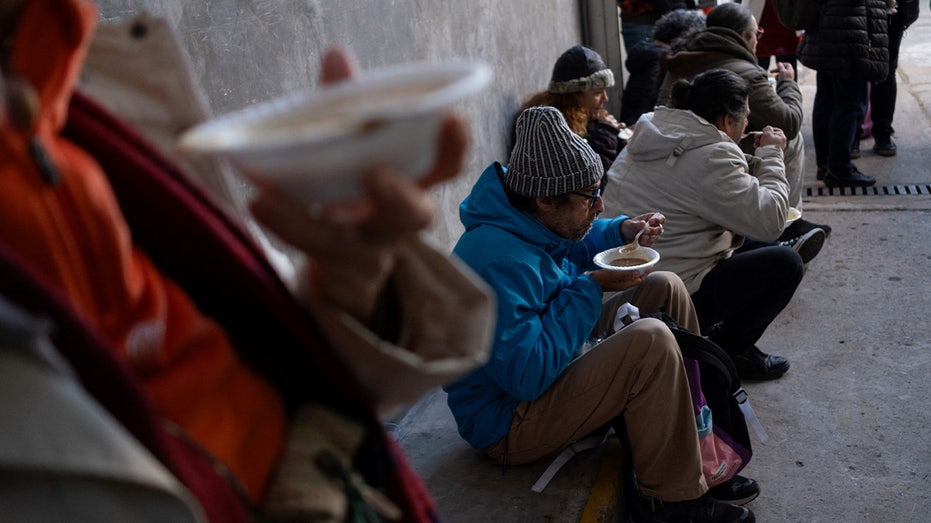Inflation in Argentina has dropped to the single digits under President Javier Milei’s strict spending cuts, but the cost of living remains exuberant.
In May, the Latin American nation saw its best month since Milei took office in December, when the monthly inflation rate cooled to 4.2% before inching up to 4.6% in June – a significant reduction from the three-decade high of 25.5% incurred by the end of 2023.
The cuts have been championed by Milei, who campaigned on taking a “chainsaw” to state spending and who has drastically slashed spending cuts on social programs, pensions and public works.
US ECONOMY GREW FASTER THAN EXPECTED DURING THE SECOND QUARTER
But the pains of spending cuts are being deeply felt by the Argentinian people.
Some 70,000 public sector workers were laid off, pensions were cut by nearly 35% and infrastructure plans were frozen.
A reported 57% of the 47 million people living in Argentina are poverty-stricken as prices for groceries, electricity and gas continue to skyrocket, according to reports by Argentinian news outlet the Buenos Aires Herald.
Protesters have taken to the streets in frustration, but according to Joseph Humire, executive director of the Center for a Secure Free Society, support for Milei remains relatively high.
“Trust in the government remains low, but trust in Javier Milei is high,” Humire said in reference to a recent Argentinian university poll. “They don’t really have any institutional trust with the government, but his popularity … seems to be at a relatively positive level.”
The libertarian president warned early on that things would have to get worse before they could start to get better for the Latin American nation.

BOSSES ADMIT THAT RETURN-TO-OFFICE MANDATES WERE MEANT TO MAKE STAFF QUIT
Milei’s approach to cutting inflation, debt and stabilizing the peso has been hugely controversial, and investors are still watching to see if Milei can fully pull the nation out of a recession.
Humire also pointed out that just because inflation and the macroeconomics of Argentina appear to be on the up and up, doesn’t mean the average Argentinian will feel immediate positive effects.
“They need a little more time,” Humire said. “They’re still in a bad economic situation in terms of the day-to-day cost of living.
“But I think that they are giving Milei a pass and I think that’s mostly because he’s been honest with them about the economic situation,” he added,
Argentina’s Central Bank is looking to loosen its foreign exchange controls that regulate access to the U.S. Dollar amid soaring inflation rates, which have pushed away foreign investment.
“What [the cap] effectively does is it creates basically a shortage of how much is available in the Argentinian economy to be able to use for commercial business,” Humire said, explaining that if the cap is lifted too quickly, it could spark more inflation by further weakening the value of the Argentinian peso.

Argentina’s economy is expected to take some time before real progress can be made and before seeing a return of foreign investment, strengthening the Peso and lowering the cost of consumer goods.
The efficiency with which Milei can turn things around will have an impact on his approval rating, which remains around 50% according to local polls.
“He wants to turn Argentina into a beacon of economic prosperity based on economic freedom,” Humire said. “A lot of these cuts that he’s done in the public sector – it’s not that he’s trying to erase those functions inside the Argentine economy as a whole – he’s trying to transition them to the private sector.”
Read the full article here











